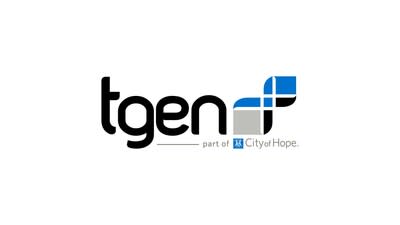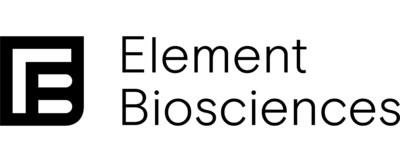The study identified the probable cause of the genetic disease in six families
PHOENIX AND SAN DIEGO, July 10, 2023 /PRNewswire/ — New genetic sequencing technology from Element Biosciences has helped researchers at the Translational Genomics Research Institute (TGen), part of the City of Hope, identify likely genetic causes of the disorders in six of nine children from Sonora, Mexico. These research findings have been independently confirmed in a clinical laboratory setting.

The findings will help these children and their families, who had little or no access to previous genetic testing, as they seek care and supportive communities.
The children in the study have conditions including developmental delays, problems with speech, seizures, heart abnormalities and other difficulties, he said Keri Ramsey, BSN, co-clinical director, TGen Center for Rare Disorders of Childhood. For any of the identified conditions, treatment options are available. For a second condition, gene therapy research studies are underway.
“Having an answer will give these families hope and access to resources they may not have been eligible for in the past, and can help their child’s doctor make changes to patient care and the management of their symptoms,” she said. Meredith Sanchez-CastilloMD, Clinical Research Coordinator at TGen Center for Rare Disorders of Childhood.
TGen researchers worked with Element Biosciences, a multidisciplinary life sciences company, and its benchtop sequencer AVITI, to sequence the genomes of every child and their parents in nine families. Through cost and workflow improvements, Element’s technology will support broader access to genetic testing for families like those in this study.
TGen and Element researchers will present the results of the Sonoran study at the meeting of the American Society for Human Genetics in November 2023.
“These families are from Sonora, Mexicowith limited resources and no access to genetic testing,” said Sanchez-Castillo, who has worked with doctors in Mexico identify families “Some of the families needed temporary visas to enter the United States, which makes things more complicated for them since they have to drive more than five hours to our clinic.”
Genetic sequencing of the trio, a child and both parents, can uncover genetic variants that may be related to the child’s disorder and whether those variants are inherited. During this process, each piece of DNA is sequenced multiple times, and the frequency with which it is sequenced is called coverage.
The study leveraged a novel parental sequencing design at mid-child coverage so that the entire trio could be sequenced on a single flow cell while retaining the ability to identify again variants.
“This design of a trio per flow cell is fast, cost-effective, and avoids the sample pooling required for industrial-scale systems. We were thrilled to see that it was also very effective at identifying inheritance and again variants of interest,” he said Semen KruglyakPh.D., vice president of computer science at Element Biosciences.
Kruglyak and his colleagues had tested the technology on a rare condition of early blindness and wanted to expand the study to see how it might work in finding new or “again“Genetic variants that are not inherited from the parents but appear first in the child. Such variants occur most commonly in neurological disorders.
With coverage of approximately 40 times for the child and 20 times for each parent, sequencing took less than 48 hours to complete and cost $1,680 for trio. Each Element AVITI instrument houses two flow cells, so two trios can be sequenced at a time. Sequencing for this study was performed by FYR Diagnostics, a service provider and first customer of Element.
“I think this is significant, especially for bringing the technology to these researchers,” he said Jun Zao, Ph.D., Senior Director of Applications at Element Biosciences, who noted that the process uses standard library preparation products to generate PCR-free libraries for AVITI sequencing. “It’s simple and easy to use, it has faster turnaround times, and we can get high quality with the benchtop sequencer.”
Even with the lower coverage for parents, the researchers were able to identify the probable genetic cause in 67% of families. “Usually, our detection rate for families in the Center is about 40 percent,” Ramsey said.
The TGen and Element researchers independently analyzed the results, and “we had near-perfect agreement, so I think it’s a testament to the quality of the data and the interpretation processes that were used to draw conclusions,” said Kruglyak.
The affected gene was different in all families, and the technology was able to capture a variety of different types of genetic variants, he added.
“After clinical confirmation, we began counseling the six families on family planning and recurrence risk,” Ramsey said. In cases where current treatment is not available, the Center will help connect families with resources and other patients with the same condition.
“Not only does this have the potential to explain what is causing their child’s symptoms, but it can also provide insights into what the future may hold for their children,” she added.
Ramsey said that since TGen’s Center for Rare Disorders of Childhood opened in 2012, it has become more important than ever to seek genetic diagnoses.
“Many of the treatment approaches now are leaning towards gene therapy, going in and modifying or supplying copies of the missing or broken gene. In these cases, knowing the underlying genetic cause of the child’s disorder is crucial,” she said. “At TGen we’re always looking for the best kinds of sequencing technologies, and that’s really exciting because it’s a proof of concept that this sequencing strategy is successful.”
About TGen, part of City of Hope
The Translational Genomics Research Institute (TGen) is a Phoenix, Arizonanon-profit organization dedicated to conducting groundbreaking research with life-changing results. TGen is part of City of Hope, a world-renowned independent research and treatment center for cancer, diabetes and other life-threatening diseases. This precision medicine affiliation allows both institutions to complement each other in research and patient care, with City of Hope providing a meaningful clinical environment to advance the scientific breakthroughs made by TGen. TGen focuses on helping patients with neurological disorders, cancer, diabetes, and infectious diseases through cutting-edge translational research (the process of rapidly moving research toward patient benefit). TGen physicians and scientists work to unravel the genetic components of common and complex rare diseases in adults and children. Working with collaborators in the scientific and medical communities around the world, TGen makes a substantial contribution to helping patients through the efficiency and effectiveness of the translation process. Follow TGen on Facebook, LinkedIn and Twitter @TGen.
Contact with the media
Galen Perry
602-343-8423
gperry@tgen.org
About Element Biosciences, Inc.
Element Biosciences is a multidisciplinary life sciences company currently focused on developing disruptive DNA sequencing technology for the research and diagnostics markets. By innovating every building block of a sequencing system, Element offers customers high-quality, cost-effective data and an improved user experience, which in turn will accelerate scientific discoveries and expand the use of genomic medicine. For more information about Element, visit www.elementbiosciences.com.
Contact with the media
Kristi Heim
Bioscience elements
kristi.heim@elembio.com


View original content to download media: https://www.prnewswire.com/news-releases/novel-genetic-sequencing-technology-helps-researchers-find-answers-in-cases-of-pediatric-rare- disorders-301872383 .html
SOURCE Element Biosciences
#genetic #sequencing #technology #helping #researchers #find #answers #rare #pediatric #disease #cases
Image Source : finance.yahoo.com
